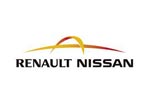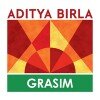Filter interviews by
Renault-Nissan Process Engineer Interview Questions and Answers
Renault-Nissan Process Engineer Interview Experiences
1 interview found
I applied via Walk-in and was interviewed before Apr 2022. There were 4 interview rounds.

All kind of technical & logical reasoning
(1 Question)
- Q1. About past company experience & how we tackled different critical situations
(1 Question)
- Q1. Why only this company
Interview Preparation Tips
Share your thoughts & past experiences
Top trending discussions






Interview questions from similar companies

I appeared for an interview before Jul 2016.
Interview Questionnaire
6 Questions
- Q1. Tell me about your job content
- Ans.
As a Process Engineer, my job involves designing, implementing, and optimizing manufacturing processes to improve efficiency and quality.
Designing and implementing manufacturing processes
Optimizing processes to improve efficiency and quality
Troubleshooting issues in production
Collaborating with cross-functional teams
Ensuring compliance with safety and regulatory standards
- Q2. About yourself
- Q3. Job related experience check.
- Q4. Job content
- Q5. Why do I want to join in here.
- Ans.
I am passionate about process engineering and believe this company offers a great opportunity for growth and innovation.
Passionate about process engineering
Believe in company's opportunities for growth
Excited about potential for innovation
- Q6. What are my preferences
- Ans.
My preferences include working in a collaborative team environment, utilizing problem-solving skills, and continuous learning opportunities.
I prefer working in a collaborative team environment
I enjoy utilizing problem-solving skills
I value continuous learning opportunities
Interview Preparation Tips
Experience: Explained
Tips: Be specific and crisp
Round: Technical + HR Interview
Experience: Explained
Tips: They were impressed by English speaking skills.
Round: Technical Interview
Experience: Explained
Tips: Really tricky and stressing interview taken by PE head.

I appeared for an interview in May 2022.

(1 Question)
- Q1. Technical things explain
(1 Question)
- Q1. Hobbies & salary structure
Interview Preparation Tips

I applied via Naukri.com and was interviewed in Jun 2024. There was 1 interview round.
(9 Questions)
- Q1. What is tip speed, and how do you calculate it from the laboratory to the pilot plant?
- Ans.
Tip speed is the speed at the outer edge of a rotating object, calculated by multiplying the radius by the angular velocity.
Tip speed is the speed at the outer edge of a rotating object.
It is calculated by multiplying the radius of the object by the angular velocity.
In the laboratory, tip speed can be calculated using the formula: Tip Speed = 2 * π * Radius * RPM.
In the pilot plant, the same formula can be used to calc...
- Q2. What are heat transfer and mass transfer, and what is their significance?
- Ans.
Heat transfer is the movement of heat from one place to another, while mass transfer is the movement of mass from one place to another. Both are important in various engineering processes.
Heat transfer involves conduction, convection, and radiation.
Mass transfer involves diffusion, convection, and molecular diffusion.
Significance of heat transfer includes maintaining temperature in chemical reactors, HVAC systems, etc.
...
- Q3. What actions have you taken in troubleshooting?
- Ans.
I have taken various actions in troubleshooting, including analyzing data, conducting experiments, and collaborating with team members.
Analyze data to identify potential issues
Conduct experiments to test hypotheses
Collaborate with team members to brainstorm solutions
Utilize problem-solving skills to troubleshoot complex problems
- Q4. What are Power Number and Flow Number?
- Ans.
Power Number and Flow Number are dimensionless numbers used in fluid mechanics to characterize the flow behavior of fluids in different systems.
Power Number is a dimensionless number used to characterize the power consumption in a mixing system. It is defined as the ratio of the power input to the fluid to the product of the impeller speed, impeller diameter, and fluid density.
Flow Number is a dimensionless number used...
- Q5. How do the P/V ratio and tip speed affect the selection of scale-up, and what criteria do you use for this selection?
- Ans.
P/V ratio and tip speed impact scale-up selection in process engineering.
P/V ratio affects the level of shear stress in the system, influencing mixing and reaction rates.
Higher tip speeds can lead to increased shear forces and heat generation, impacting product quality.
Selection criteria include desired mixing intensity, heat transfer requirements, and shear sensitivity of the product.
For example, in pharmaceutical man...
- Q6. What is HAZAOP, and what is the procedure for it?
- Ans.
HAZOP stands for Hazard and Operability Study, a systematic method to identify potential hazards and operability issues in a process.
HAZOP is a structured and systematic examination of a process to identify potential hazards and operability issues.
It involves a team of experts analyzing the process step by step to identify deviations from the design intent.
The team uses guide words such as 'no', 'more', 'less', 'as wel...
- Q7. What is your job role?
- Ans.
As a Process Engineer, my job role involves designing, implementing, and optimizing industrial processes to ensure efficiency and quality.
Designing and implementing processes to improve efficiency and quality
Optimizing existing processes to reduce costs and increase productivity
Troubleshooting issues and implementing solutions to improve process performance
Collaborating with cross-functional teams to ensure smooth oper...
- Q8. What calculations do you perform when transferring a new product from the lab to the plant?
- Ans.
Calculations include scale-up factors, equipment sizing, material compatibility, process optimization, and cost analysis.
Determine scale-up factors to ensure the lab process can be replicated in the plant
Size equipment appropriately for the larger scale production
Check material compatibility with plant equipment and process conditions
Optimize the process parameters for efficiency and quality
Conduct cost analysis to det
- Q9. How to calculate distillation rate?
- Ans.
Distillation rate can be calculated by dividing the amount of distillate collected by the time taken to collect it.
Calculate the amount of distillate collected in a given time period.
Divide the amount of distillate by the time taken to collect it to get the distillation rate.
Express the distillation rate in units such as liters per hour or gallons per minute.

I applied via Recruitment Consulltant and was interviewed before Feb 2021. There was 1 interview round.
(2 Questions)
- Q1. Open pump house and Tunnels
- Q2. Road and
Interview Preparation Tips

I applied via Recruitment Consulltant and was interviewed before Feb 2021. There was 1 interview round.
(2 Questions)
- Q1. Open pump house and Tunnels
- Q2. Road and
Interview Preparation Tips

Interview Questionnaire
1 Question
- Q1. Stge concepts, vSAN, RAID, basic testing, OS concepts, NVMe, SATA, SAS

I applied via Naukri.com and was interviewed in Oct 2021. There were 2 interview rounds.
They ask to many technical question and ask to code also
They ask for your background and thing you learnt in your past
Interview Preparation Tips

Interview Questionnaire
2 Questions
- Q1. What do you mean by CFMEA?
- Ans.
CFMEA stands for Control Failure Mode and Effects Analysis.
CFMEA is a systematic approach used to identify and mitigate potential failures in a process or system.
It involves analyzing failure modes, their causes, and the potential effects on the process or system.
CFMEA helps in prioritizing and implementing control measures to prevent or minimize failures.
It is commonly used in industries such as manufacturing, automot...
- Q2. Is system level or component level DFMEA given main preference?
- Ans.
System level DFMEA is given main preference.
System level DFMEA considers the entire system and its interactions.
Component level DFMEA focuses on individual components.
System level DFMEA is more comprehensive and effective in identifying potential failures.
Example: In automotive industry, system level DFMEA would consider the entire vehicle and its subsystems.
Example: In medical devices, system level DFMEA would conside...
Interview Preparation Tips

(2 Questions)
- Q1. Tell me how you you;ll be able to fit a motor and and inverter within half meter cube area
- Ans.
By carefully designing the layout and components, utilizing compact and efficient motor and inverter models, and optimizing the wiring and cooling systems.
Utilize compact and efficient motor and inverter models
Carefully design the layout to maximize space utilization
Optimize wiring and cooling systems to minimize space requirements
- Q2. Do you know about safety standards used in Automotive Industry
- Ans.
Yes, safety standards in the Automotive Industry are crucial for ensuring the well-being of both drivers and passengers.
Knowledge of standards such as ISO 26262 for functional safety in automotive systems
Understanding of crash test ratings and regulations like FMVSS (Federal Motor Vehicle Safety Standards)
Awareness of safety features like ABS (Anti-lock Braking System) and ESC (Electronic Stability Control)
Experience w...
Interview Preparation Tips
Renault-Nissan Interview FAQs
Tell us how to improve this page.
Renault-Nissan Interviews By Designations
- Renault-Nissan Assistant Engineer Interview Questions
- Renault-Nissan Senior Engineer Interview Questions
- Renault-Nissan Electrical GET Interview Questions
- Renault-Nissan Graduate Trainee Interview Questions
- Renault-Nissan Graduate Engineer Trainee (Get) Interview Questions
- Renault-Nissan Software Engineer Interview Questions
- Renault-Nissan Assistant Manager Interview Questions
- Renault-Nissan Production Engineer Interview Questions
- Show more
Interview Questions for Popular Designations
- Process Engineer Trainee Interview Questions
- Process Associate Interview Questions
- Chemical Process Engineer Interview Questions
- Junior Process Engineer Interview Questions
- Processing Executive Interview Questions
- Process Developer Interview Questions
- Assistant Manager Process Engineering Interview Questions
- Process Quality Engineer Interview Questions
- Show more
Renault-Nissan Process Engineer Interview Process
based on 1 interview
Interview experience
Process Engineer Interview Questions from Similar Companies
Fast track your campus placements
Renault-Nissan Process Engineer Reviews and Ratings
based on 5 reviews
Rating in categories
|
Senior Engineer
458
salaries
| ₹4.9 L/yr - ₹13.2 L/yr |
|
Assistant Engineer
324
salaries
| ₹4 L/yr - ₹9.7 L/yr |
|
Engineer
308
salaries
| ₹5.4 L/yr - ₹11 L/yr |
|
Assistant Manager
270
salaries
| ₹9 L/yr - ₹16 L/yr |
|
Graduate Apprentice Trainee
259
salaries
| ₹0.7 L/yr - ₹3.5 L/yr |

Tata Motors

Asian Paints

Maruti Suzuki

Cipla
- Home >
- Interviews >
- Renault-Nissan Interview Questions >
- Renault-Nissan Process Engineer Interview Questions















